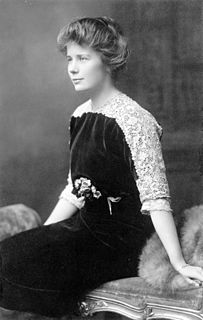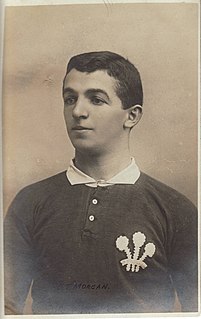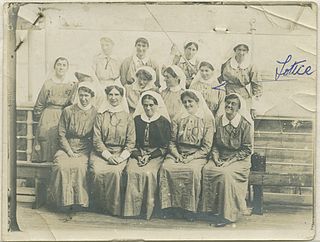Ethel Pritchard MBE (née Watkins, 1880–1964), also known as Ethel Watkins Taylor, was a New Zealand military and civilian nurse. Of Māori descent, she identified with the Ngāpuhi iwi. She was born in Onehunga, Auckland, New Zealand, in 1880. [1]

The Māori are the indigenous Polynesian people of New Zealand. Māori originated with settlers from eastern Polynesia, who arrived in New Zealand in several waves of canoe voyages some time between 1250 and 1300. Over several centuries in isolation, the Polynesian settlers developed a unique culture, with their own language, a rich mythology, and distinctive crafts and performing arts. Early Māori formed tribal groups based on eastern Polynesian social customs and organisation. Horticulture flourished using plants they introduced; later, a prominent warrior culture emerged.

Ngāpuhi is a Māori iwi located in the Northland region of New Zealand, and centred in the Hokianga, the Bay of Islands, and Whangarei.
Iwi are the largest social units in Aotearoa Māori society. The Māori-language word iwi means "people" or "nation", and is often translated as "tribe", or "a confederation of tribes". The word is both singular and plural in Māori.
In the 1949 King's Birthday Honours, Pritchard was appointed a Member of the Order of the British Empire for long services as a district nurse and an honorary child welfare officer. [2]
The 1949 King's Birthday Honours in New Zealand, celebrating the official birthday of King George VI, were appointments made by the King on the advice of the New Zealand government to various orders and honours to reward and highlight good works by New Zealanders. They were announced on 9 June 1949.

The Most Excellent Order of the British Empire is a British order of chivalry, rewarding contributions to the arts and sciences, work with charitable and welfare organisations, and public service outside the civil service. It was established on 4 June 1917 by King George V and comprises five classes across both civil and military divisions, the most senior two of which make the recipient either a knight if male or dame if female. There is also the related British Empire Medal, whose recipients are affiliated with, but not members of, the order.








